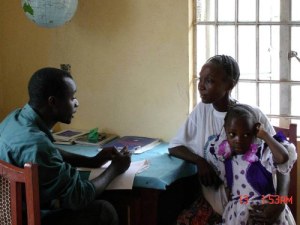We the People: Baltimore is the new South Africa
July 10, 2015 Leave a comment
Jennifer Rae Taylor spent three months earlier this year with the Wits Justice Project, researching race and the criminal justice in South Africa. In a recent article published in Salon, she offers some explanations for why the city of Baltimore erupted in protests that invoked racial inequality following the death of Freddy Gray while in police custody— despite the fact that the city is governed under a black leadership. Why the residents of Baltimore had no more faith in law enforcement and prosecutors than their counterparts in Ferguson, Missouri or Staten Island, where whites are over-represented in local government and the police force.

A woman faces down a line of Baltimore Police officers in riot gear during violent protests following the funeral of Freddie Gray April 27, 2015 in Baltimore, Maryland. (Photo by Chip Somodevilla/Getty Images) Accessed on http://www.pressroomvip.com/19-shocking-images-from-the-baltimore-riots/
Her questions brought her back to South Africa, where like Baltimore, blacks have achieved racial representation in key government positions, but young black men continue to be criminalized. As in the United States, the public perception in South Africa is that the courts treat blacks differently from whites.
In her article, Taylor observes the similarities between the two countries’ racial histories and reflects on their failures to realize their ideals of racial justice.
She writes:
Though the vast majority of lawmakers, judges and prison leaders are now black, apartheid’s end did not begin a national project to dismantle and rebuild a system for responding to crime. Power changed hands but continued on the same track. Mandatory minimum sentencing laws that flourished in the U.S. beginning in the 1980s were embraced by South Africa’s democratic government post-1994 as a response to growing poverty and crime, and the number of South African prisoners serving life sentences has increased by nearly 3,000 percent. Lengthy and widespread imprisonment, a tool whites first embraced as a means of exploiting and controlling the nation’s black masses, is now wielded by the nation’s black leaders.
Read Taylor’s full article here: “Baltimore is the new South Africa: Black political power in South Africa — or in Baltimore — hasn’t prevented horrendous racial injustice“.
We the People
In a series of blogposts, entitled “We the People”, the Wits Justice Project will be focusing on a comparison of policing, criminal justice, and incarceration in South Africa and the United States. This body of work grows out of contributions by journalists, lawyers, and commentators on both sides of the Atlantic, and seeks to understand these issues in light of the similar histories of racial oppression and the current high rates of incarceration in both countries.
Given that South African courts regularly turn to international jurisprudence, including American law, for guidance, we believe that this study will provide a useful basis to examine the development of criminal law and procedure here in South Africa with a critical lens. While American courts give less weight to jurisprudence from other countries, we hope that these posts will provide insight into the way that the role of human dignity, recognized by the South African Constitution, should be a consideration in any search for justice.





